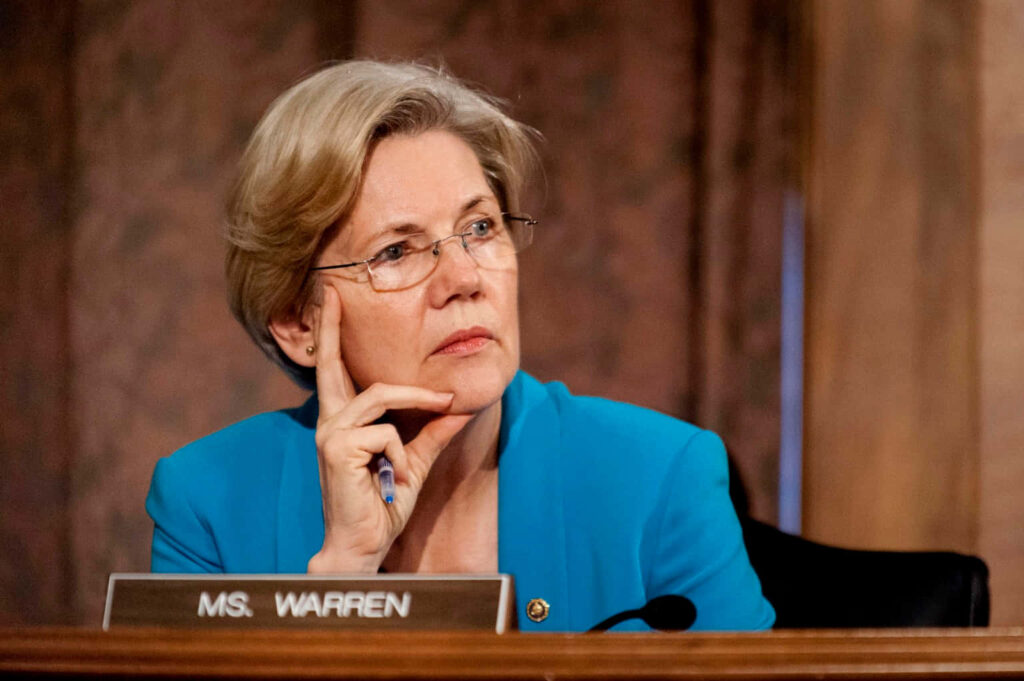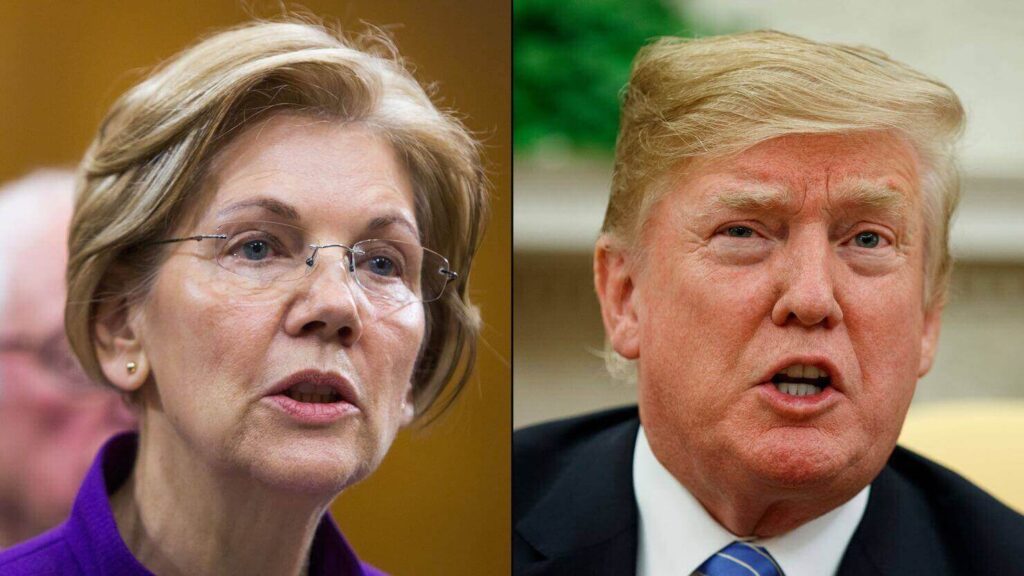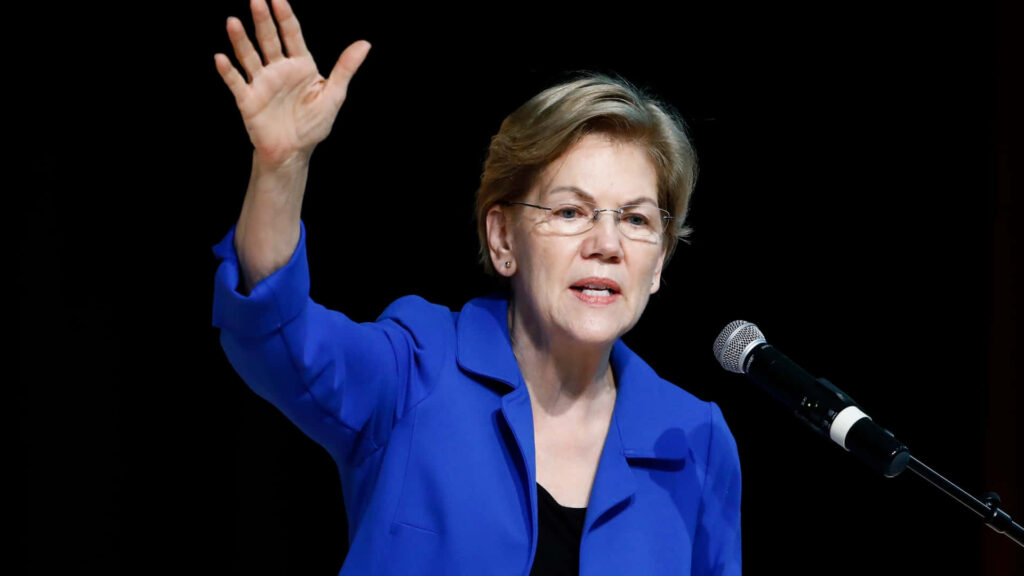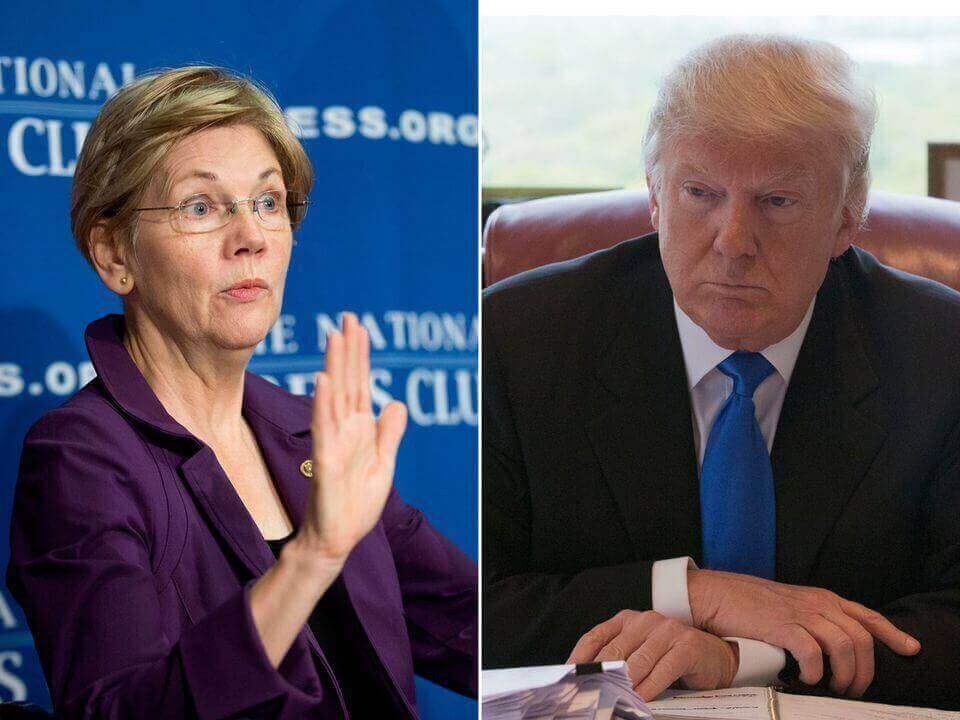Table of Contents
Elizabeth Warren is a U.S. Senator from Massachusetts, a leading progressive who has championed progressive economic justice, consumer protection, and financial regulation causes. She has been a consistently staunch advocate for reducing income inequality and holding Wall Street accountable, while serving as a former law professor and founder of the Consumer Financial Protection Bureau (CFPB).
Senator Elizabeth Warren has been in the hot seat recently over her opposition to President Donald Trump’s judicial appointments. She and many other Democratic senators have during Trump’s presidency already refused to accept many Trump nominees, especially for federal courts, saying that they were unqualified and too ultraconservative. Her posture reflected broader Democrats worries about the potential long-term consequences of Trump’s judicial legacy, given the chance to install a string of conservative judges for the foreseeable future. Warren’s voice was just one part of a strategy to balance Trump’s sway; the wider effort was to preserve checks on the exercise of executive power.

Elizabeth Warren Re-election and Her Agenda
Elizabeth Warren’s re-election, when she crushed her opponent, Republican John Deaton in Massachusetts, continued to establish her as one of the democratic voices. Before she was elected to the Senate, Warren centered much of her campaign around the challenges of inflation, rising housing costs, and the plight of working-class families, which she’s continued to do throughout her tenure there. In contrast to Deaton’s ‘common-sense conservatism’ favoring economic stability under the banner of minimal regulation, her approach puts an emphasis on economics and a platform of little regulation during inflation, as per this guide.
Elizabeth Warren’s re-election highlights how Massachusetts is in step with progressive values and opposed to Trump-era policies that she says have expanded economic inequalities. Warren’s assertion in her victory speech that she supports issues such as reproductive rights, housing, and controlling inflation put her clearly on a path that speaks to a broad base.
Elizabeth Warren: Resistance to Trump’s Appointments
Many of Elizabeth Warren’s sharp criticism of Trump’s latest appointments deals with the risks she sees to American families. She has said these appointments could undermine regulatory oversight, strip away consumer protections and imperil public health and environmental protections. Elizabeth Warren’s comments follow the candidate’s broader belief in strong federal supervision to keep corporations and financial institutions in line.
It reinforces a broader struggle in Washington over how to steer agency policy through appointments by Trump made at federal agencies where ideological debate is rampant. And she has warned that, by putting people into leadership positions with past affiliations to corporate interests or conservative policy, one could see deregulation, which she claims could hurt middle- and lower-income Americans.

Senator Elizabeth Warren remains a strong beast of a progressive voice who questions the past couple of changes made by former President Donald Trump. She’s opposed to it on the grounds that it would hurt economic justice, reproductive rights, and governance. Her stance on these appointments also reflects a wider ambit of efforts to protect middle- and lower-income families and against what she sees as threats to democratic principles.
Economic Policy and Inflation: Protecting Working Families
One of the themes Warren strips out in her critique is inflation. Her Senate campaign and the calls she made against Trump’s appointments were largely defined by the economic pressures Americans faced. Warren is no fan of policies that may reward corporations or the rich over protecting working families and she has pushed for a government that intervenes to keep inflation in check.

It is a debate in Washington over the proper role for government in economic policy that she voices. Warren has also distinguished herself from Trump’s appointees by opposing them, a move that indeed hews to Elizabeth Warren’s position that she, as president, would fight for policies designed to keep working- and middle-class families financially stable.
Women’s Rights and Reproductive Issues
The issue of reproductive rights has been a consistent area of focus both for Warren in her campaign and opposition to Trump-era policies. Warren has vowed to defend reproductive rights, telling supporters in her victory speech it was a ‘battle for America.’ And when the House shows support for Trump appointees, she critiques the potential impact on women’s health and rights and the need to preserve federal protections for reproductive healthcare.
Warren’s position on these issues is consistent with Democratic efforts, more generally, to protect reproductive rights against changing judicial and policy action that might erode them. Her activism is part of a larger hope to finance women’s health care and other such elements that protect personal freedoms and advance gender equality.
The Gaza Conflict and Foreign Policy
Elizabeth Warren’s foreign policy focus has so far largely been domestic, but she has commented on the most recent Israel-Gaza conflict. Warren said she supported increased humanitarian aid for Gaza and that she believed a solution that takes into account humanitarian concerns and the security of hostages is possible. While that stance fits, on its face, inside today’s mainstream Democratic camp on issues of human rights, it also shows that she has been prepared to embrace complexities of U.S. foreign policy.
There are some who will support foreign policies that lack such humanitarian considerations, she says, and she has opposed Trump’s appointments on that basis. In this area, as in so many other areas, she advocates on behalf of her principles of justice and support for international human rights efforts.

Warren’s Vision: A Progressive Future
If she’s re-elected, she will begin her third term in the Senate with the start of ‘the next chapter,’ she told CNN. “Her re-election means she can keep fighting for progressive reforms and fighting the policies she thinks hurt working families and democratic principles.” She’s against Trump’s appointments because, she told VICE News, she doesn’t want a repeat of corporate interest and protectionism, policies that limited protections for vulnerable communities.
Warren once again continues to focus on her role in the Senate to uphold consumer protection, shed light on financial institutions, or determine which government policies feel the interests of all people and not just the super elite few. And when it comes to her work, she insists that it’s motivated by a commitment to social and economic justice, a lovely message for many of the progressive voters around the country.
Conclusion: The Ineffectiveness of Warren’s Opposition
That Elizabeth Warren is still speaking out against Trump’s appointments when most others have been silenced is a clear sign of her dedication to a progressive vision for this country. Economic policy, reproductive rights, and foreign policy are at the center of her concerns about governance, which prefers to focus on the needs of ordinary Americans. Warren’s opposition is a rallying call for those who want a more inclusive, just future, as she looks ahead to her next term.
The effect Warren may have in the Senate on long-standing issues such as personal freedoms, economic stability, and accountability in government could continue, especially for years to come. For her supporters, her actions represent renewed willingness to press the fighting case for a government that works for everybody; for her critics, they underline the partisan chasm that has become the American way of life.

Your point of view caught my eye and was very interesting. Thanks. I have a question for you.